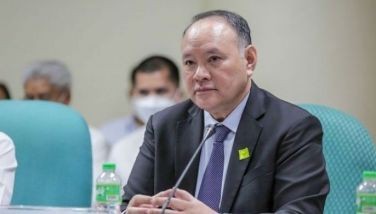No need for MILF decommissioning in Bangsamoro law, gov't says
MANILA, Philippines — The program to decommission the Moro Islamic Liberation Front (MILF) forces and weapons does not necessarily have to be stipulated in the Bangsamoro Basic Law, the chief government negotiator said.
Addressing criticisms that MILF decommissioning is not ensured in the peace process, government peace panel Chair Miriam Coronel-Ferrer said Friday that the move is an executive function and was made part of the Comprehensive Agreement on the Bangsamoro signed last March.
"The MILF signed this document and so they are obligated to see this through with the help of the government and the Independent Decommissioning Body (IDB) that we will set up very soon," Ferrer said in a statement.
Full decommissioning of the weapons and fighters will happen after the creation of the Bangsamoro and the establishment of the police force in the new region, she added.
Three foreign experts and four Filipinos will make up the decommissioning body tasked to validate the inventory of weapons and combatants that the MILF will submit. The body will also lay down the procedure for turning in weapons.
Norway, Turkey and Brunei have been invited by the government and MILF panels to nominate the foreign experts who would sit in the IDB, the Office of the Presidential Adviser on the Peace Process said.
"The process would be gradual and phased, and commensurate with the developments in the legislative process of passing the [Bangsamoro Basic Law, or] BBL," Ferrer said.
While high-powered and crew-served firearms will be turned in to the decommissioning body, Ferrer said, however, that possession of small arms may still be made legal through a registration process after the national firearm law.
"There is no need for a special law for the decommissioning," she added.
Presidential Adviser on the Peace Process Secretary Teresita Quintos-Deles issued a similar clarification.
"The normalization process doesn't have to be in the law, except for the setting up of the police force for the Bangsamoro. The normalization process is an executive action that doesn't need new legislation," she said.
The normalization process—composed of three main components, namely security, socioeconomic development, and transitional justice and reconciliation—aims to return peace to conflict-affected communities in Mindanao.
President Aquino, meanwhile, submitted the proposed Bangsamoro law to Congress in a ceremony Wednesday. House Speaker Feliciano Belmonte said a committee dedicated to assessing the proposed measure will be set up to hasten its ratification.
- Latest
- Trending































